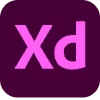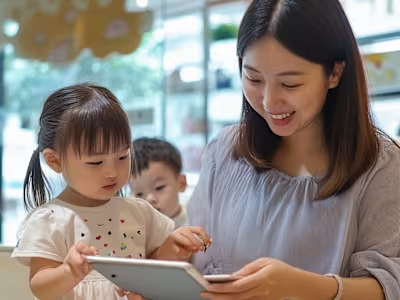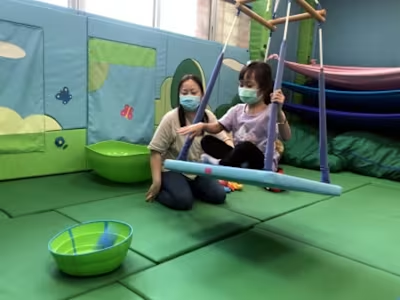OPRS 3: Service Website Model for NGOs

Transforming Online Rehabilitation Service Delivery
OPRS 3 Service Website Model for NGOs
Overview
The OPRS 3 project emerged in response to the COVID-19 pandemic, which accelerated the need for online delivery of Rehabilitation Services by NGOs and schools. Prior to this shift, the online platforms used by these organisations were inconsistent in content and functionality. The project aimed to develop a standardised website prototype with clear criteria to enhance and unify the online training services offered.
Goal
Evaluate and standardise the online service delivery models for rehabilitation training through a unified website prototype to ensure consistency, improve accessibility, and meet diverse user needs.
Outcome
A comprehensive website prototype that provides a consistent and user-friendly platform for online rehabilitation training. The solution includes customisable modules for different types of services, integrated support features, and a robust backend system to manage and track user interactions.
What is the service?
A standardised online platform model for delivering rehabilitation training services by NGOs and schools. The platform features modular design elements to cater to varying needs and ensure a cohesive user experience across different organisations.
What are the expected benefits?
For users
Consistent and reliable access to training resources
Improved usability and navigation
Enhanced ability to track progress and manage training sessions
What are required resources?
A web development framework to build the prototype
Customisable modules for different service types
A backend system for data management and user tracking
My Role
Service Designer,
User Researcher
Methods
User Research, Stakeholder Interviews, Usability Testing, Co-design Workshops, Persona Creations, Journey Mapping, Service Blueprint, Ecosystem Mapping, Rapid Prototyping, Feedback Loops
Year 2020-2022
Research
This project was initiated to address the urgent need for standardised online service delivery in the wake of the COVID-19 pandemic. I began by reviewing existing online platforms and identifying discrepancies in service delivery. Engaging with parents of children receiving the service, and NGO service delivery team through interviews and feedback sessions helped highlight the diverse needs and challenges faced by these organisations in transitioning to online services.
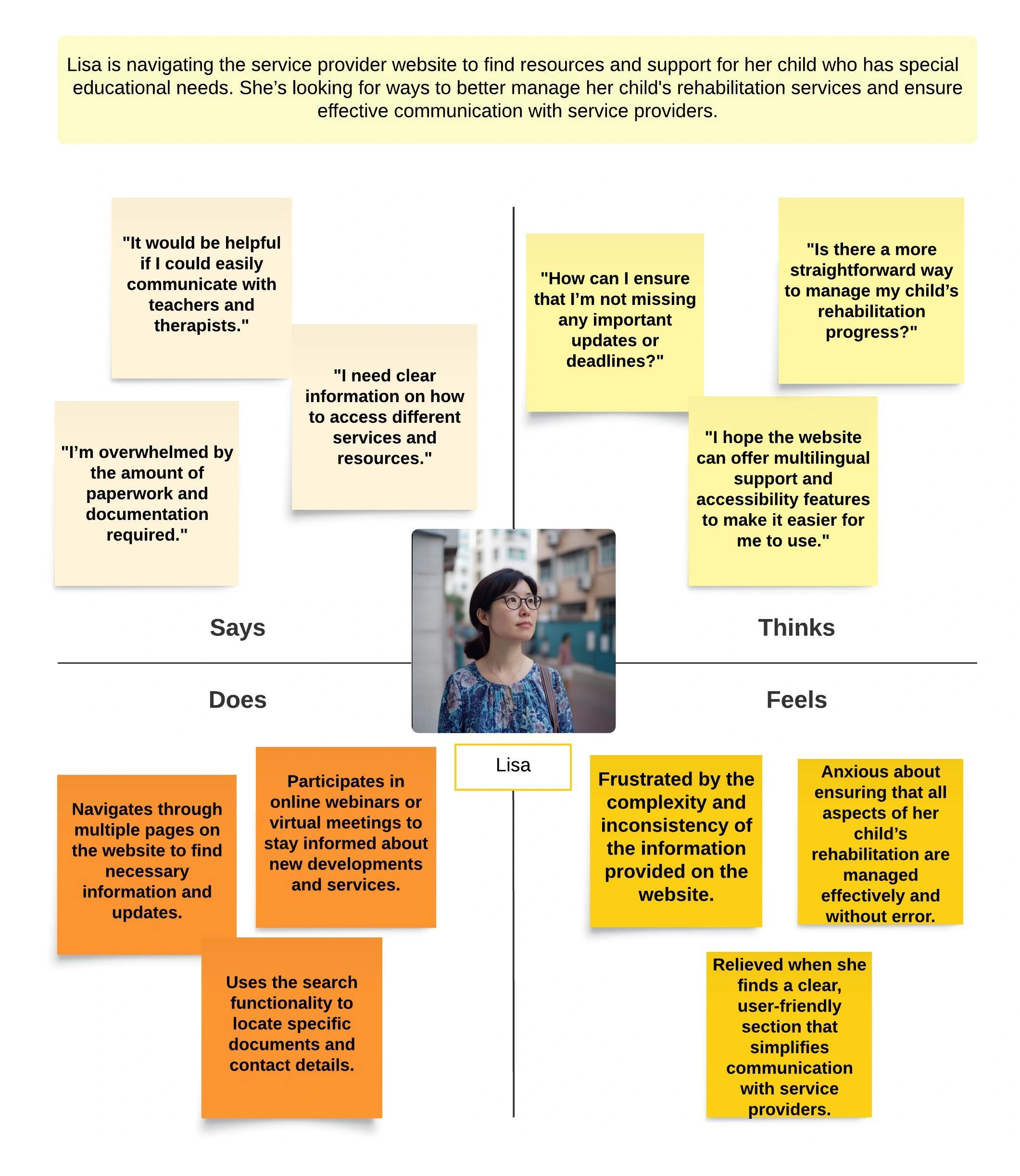
Empathy map of a parent use of the service website
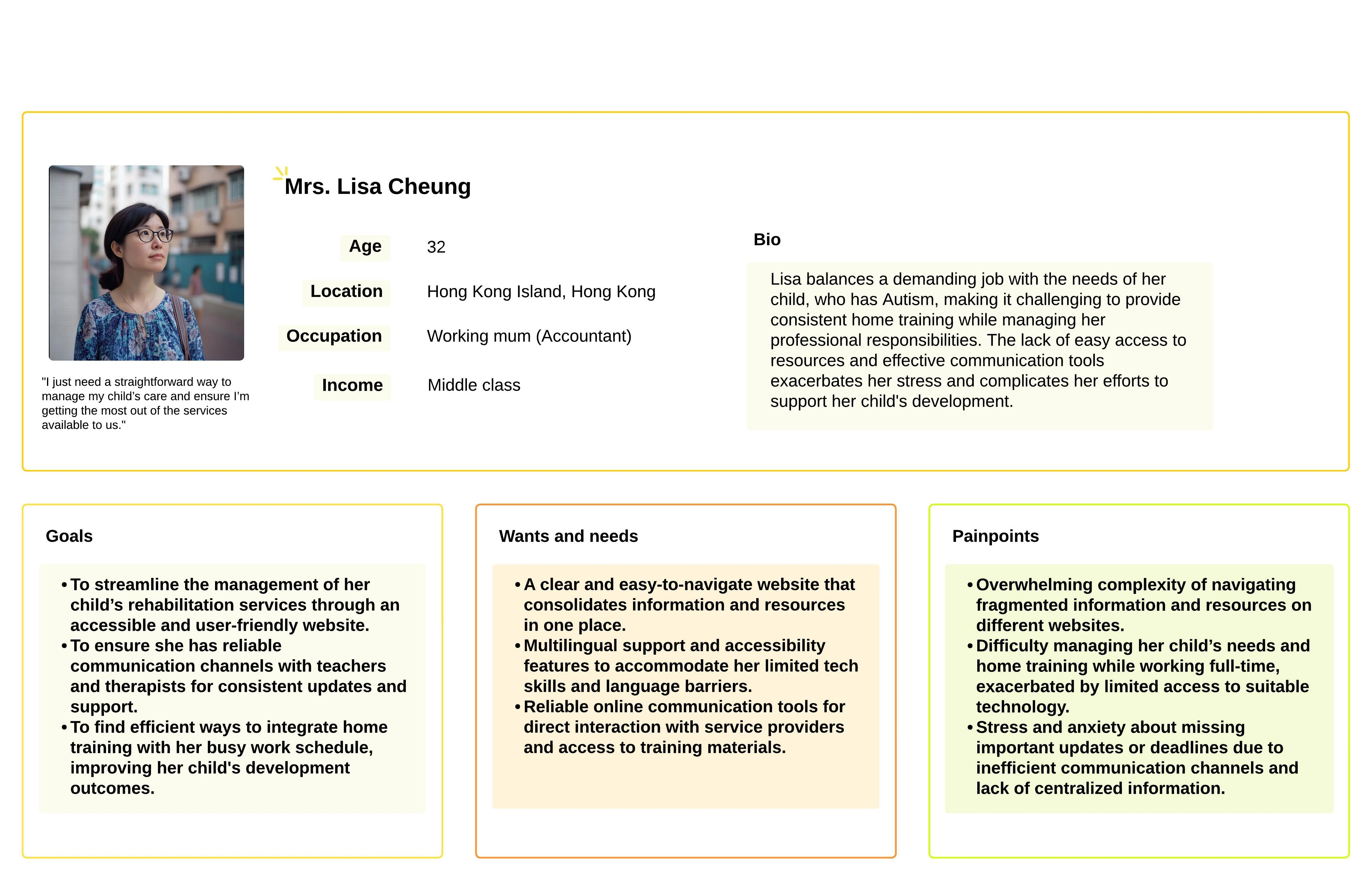
Empathy map of a parent use of the service website
Insights
Through research and user feedback, I identified several key insights:
Variation in online service quality led to inconsistent user experiences
Many organisations struggled with integrating user support features effectively
There was a need for customisable modules to address specific training requirements
An intuitive and user-friendly interface was crucial for effective service delivery
Navigating the website was a challenge at first, but once I figured it out, it became a crucial tool for managing my child's rehabilitation progress. Clearer guidance and a more intuitive design would make a big difference for us.
—Parent of a child receiving rehabilitation services
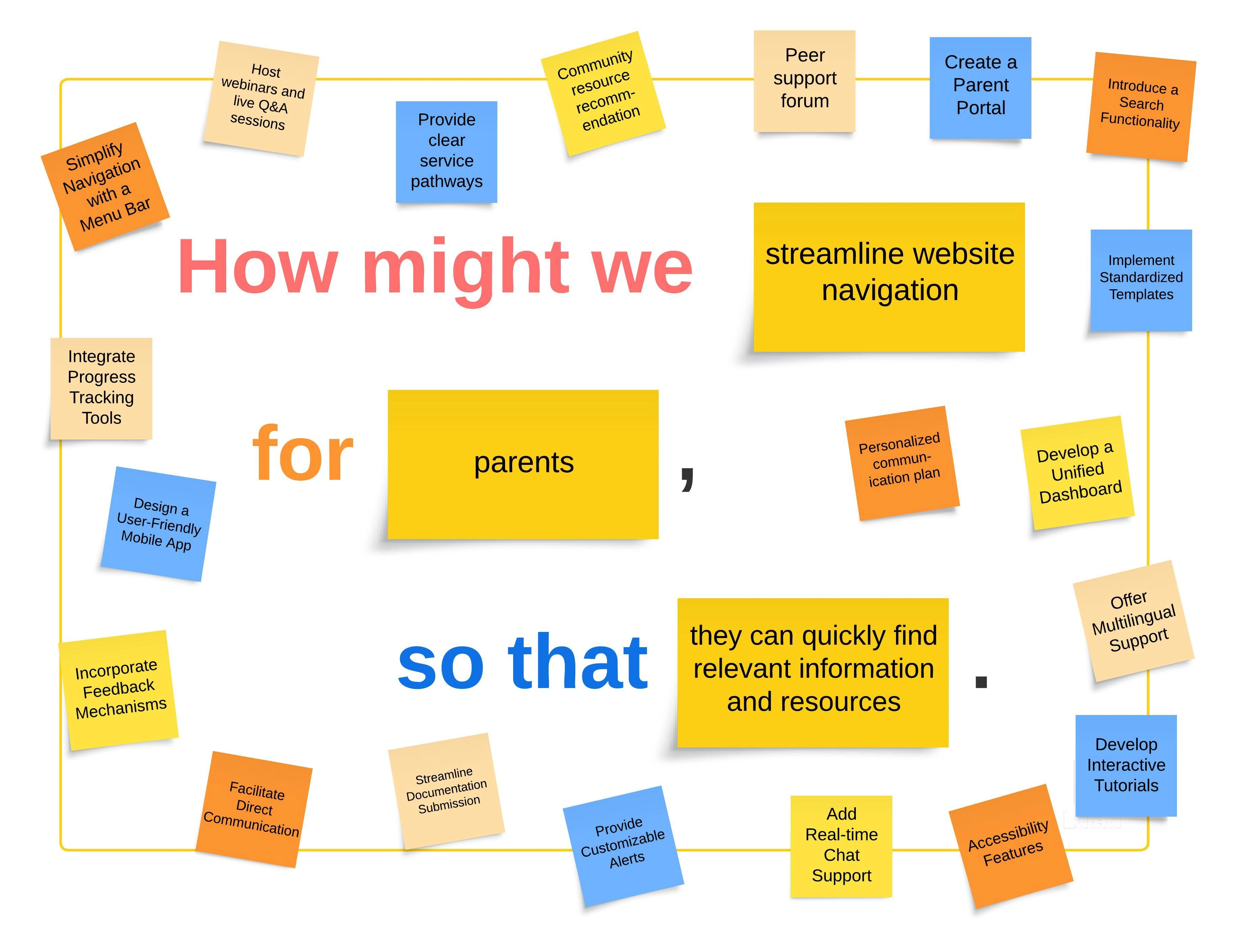
Ideas collected from workshops and interviews with parent users
Ideation
In a series of ideation workshops with stakeholders from various NGOs and schools, I generated numerous ideas for features and functionalities. Using a MoSCoW prioritisation framework, I identified the most critical elements for inclusion in the prototype:
Customisable training modules
Integrated user support and feedback systems
Data tracking and reporting tools
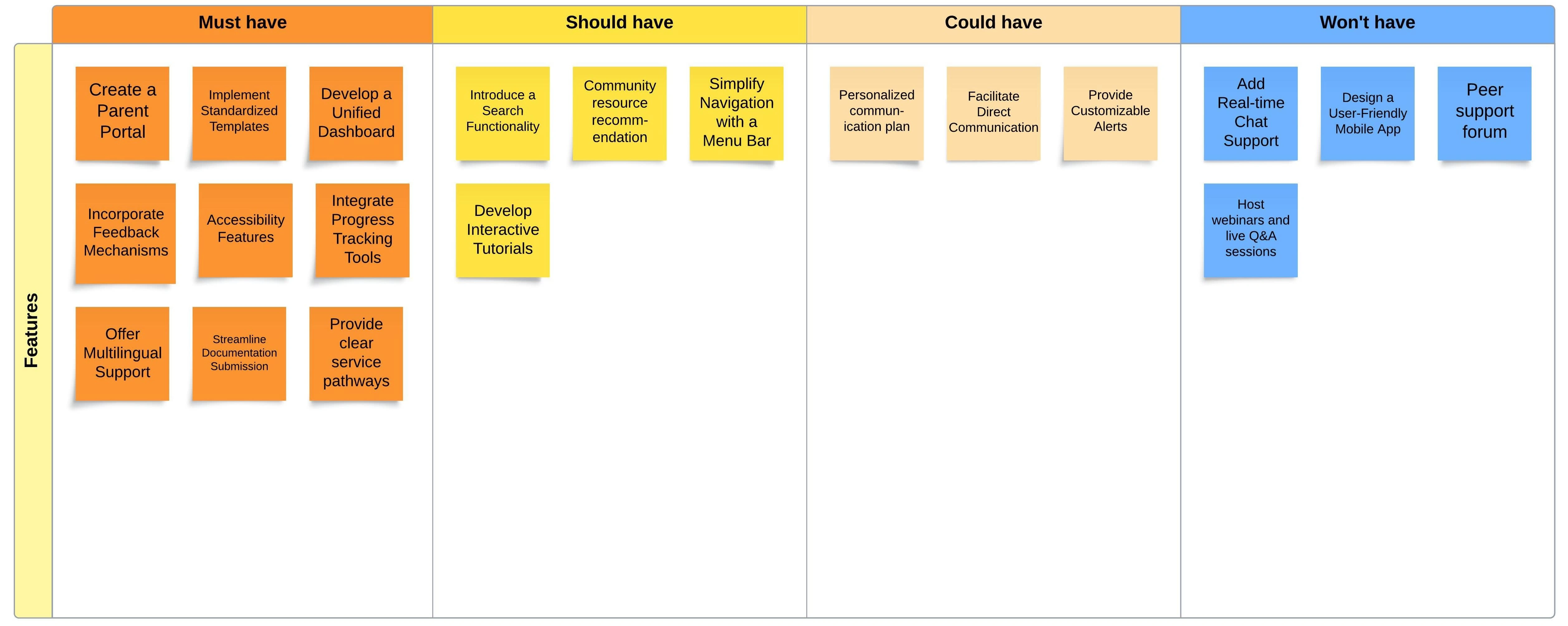
Prioritisation of ideas in ideation workshops with stakeholders
Service Concepts
I utilised storyboards and journey maps to visualise the user experience and the benefits of the proposed solutions.
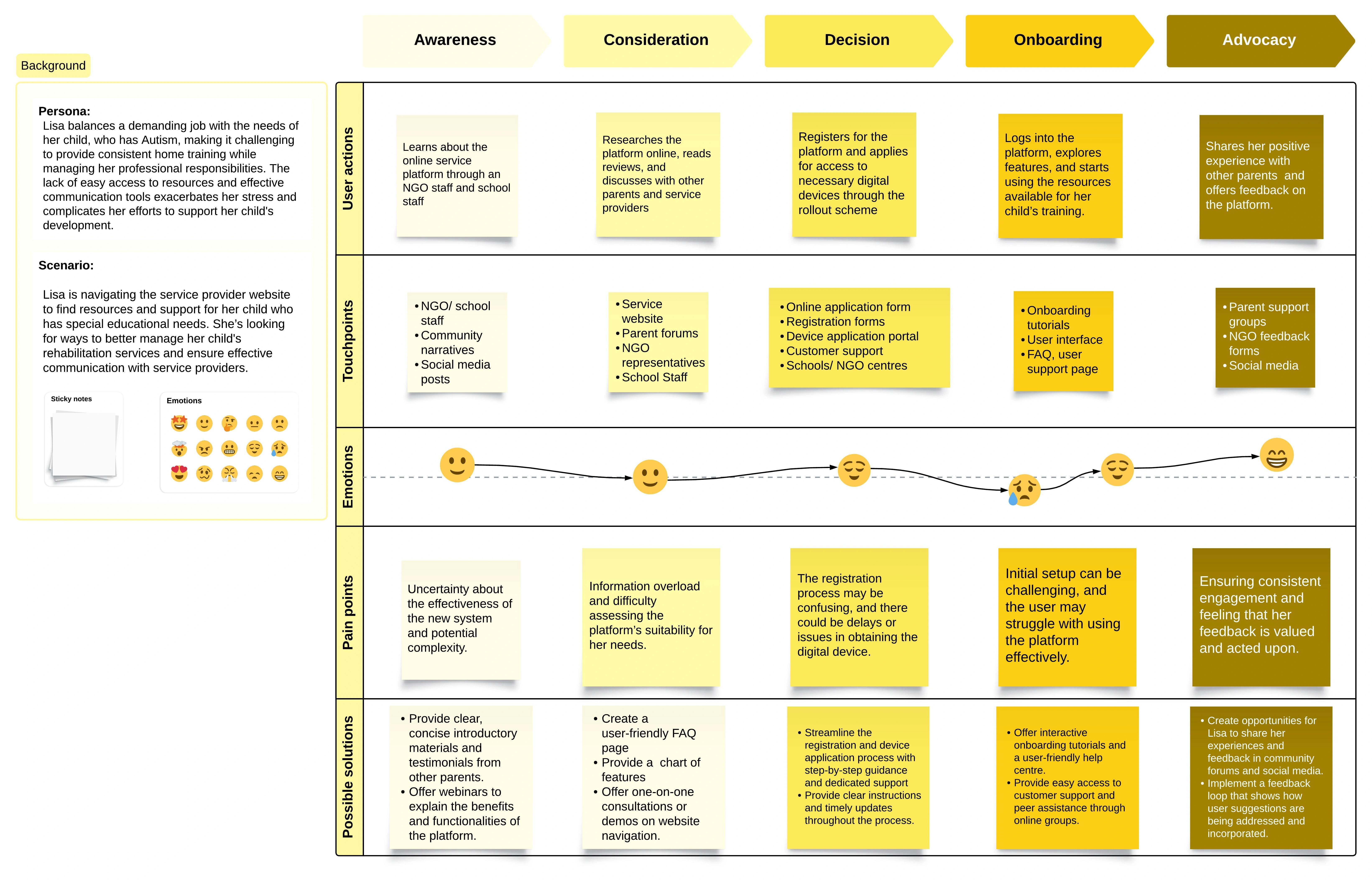
User journey map for the service website
The final service concepts included:
A website platform that allows NGOs and schools to customise training modules according to their specific needs The platform provides a unified and adaptable structure that ensures consistency across different service providers while allowing for customisation of content and functionality based on individual requirements.
This solution improves user engagement and operational efficiency by offering a cohesive interface and customisable features, addressing the diverse needs of various organisations.
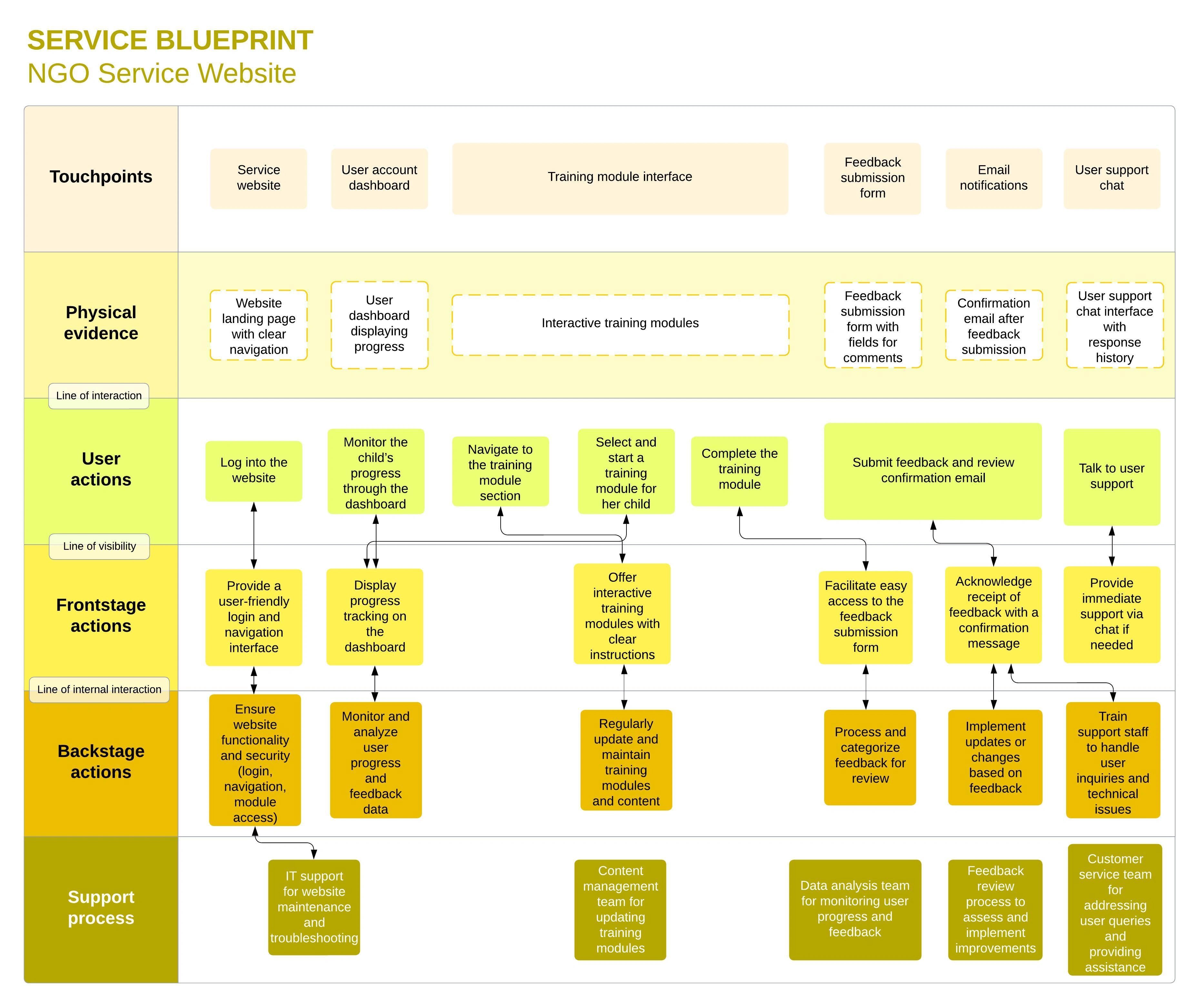
Service blueprint for the NGO service website
An integrated support system that enhances user experience and service delivery The support system includes features such as live chat, FAQs, and feedback mechanisms to assist users and track their interactions. This ensures that users receive timely support and organisations can monitor and respond to user needs effectively.
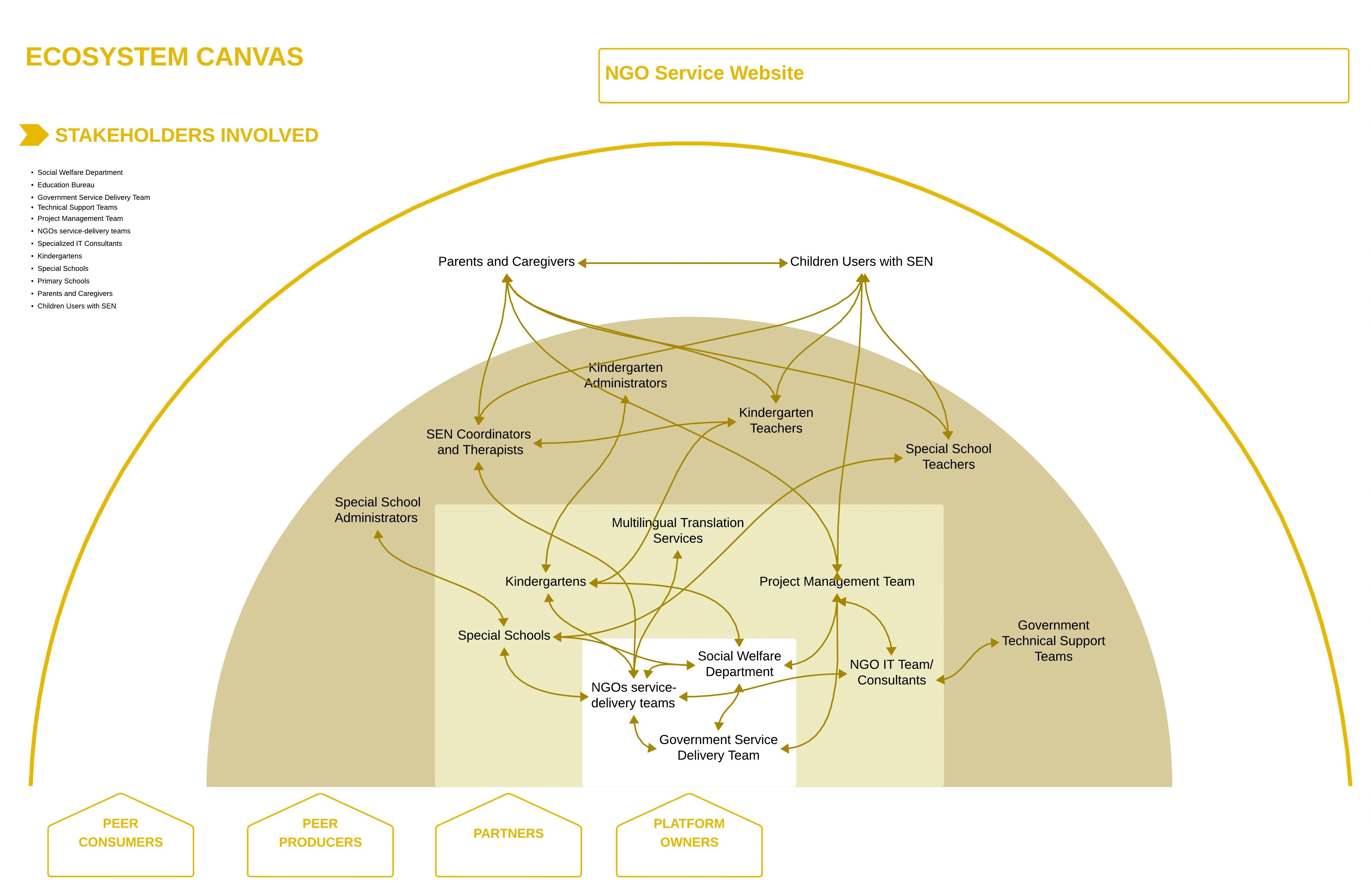
Ecosystem map for the service website model
Key Learnings
Balancing Standardisation with Customisation
Prioritising Usability and Support
Adapting Quickly to Rapid Changes
Like this project
Posted Aug 21, 2024
This project aimed to develop a standardised website prototype with clear criteria to enhance and unify the online training services offered.

